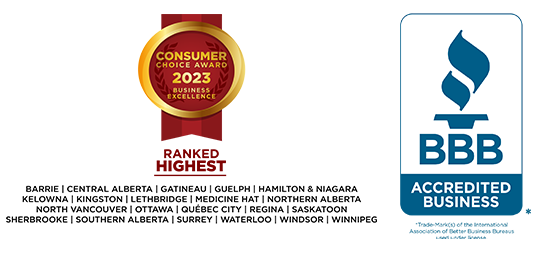It’s Tax Time Again – What If You Can’t Pay the Debt You Owe to CRA?
It’s hard to believe it’s that time of the year again. Income tax time. Hopefully you were able to budget for your instalments last year in the correct amount, or your employer took the right amount of taxes from your pay. But what if we miscalculated? Or what if other bills just added up and we weren’t able to set aside any money to pay our income taxes this year? This can be a challenge, particularly if you are self-employed.

The Canada Revenue Agency (CRA) is generally not a creditor you want to fall behind with. They have the right to garnish paycheques, bank accounts and accounts receivables or register a lien on your home…..all without notice to you that it’s coming. If you have fallen behind with your income taxes or GST, we recommend you stay in contact with the CRA and keep them posted as to what steps you are taking to make the payments. For instance, are you working on changes to your budget? Have you had a bad debt in your business that has thrown you for a loop? Have your changed accountants and they need time to get up-to-speed. The CRA will work with you, but they need to understand your situation. They will accept payment terms if it works; unfortunately they will want interest too.
CRA also has provisions for forgiveness of debt, taxpayer relief or for voluntary disclosure if you haven’t been filing your taxes for several years. These are informal mechanisms with the CRA to catch up on filing all those returns you’ve been avoiding or asking for them to write off the penalties and interest due to specific instances of hardship.
Now what if you can’t pay your income tax or GST? The good news is, there are options. There are ways to deal with CRA consumer debt. It just takes your initiative to say it’s time to deal with it, and doing so before the CRA takes collection measures against you.
Take a look at your budget. Maybe a meeting with a professional to makes some changes will free up enough room to make payments to CRA on your own.
What about a bank loan? Perhaps that be sufficient to pay off your CRA income tax or GST. We suggest that if you do one of the informal options on your own, make sure that it deals with all of your consumer debt. If the loan is only going to be a band-aid, you might be better off meeting with a professional to look at some other options to deal with all your debt at the same time. We usually recommend this before you liquidate assets, especially if they are assets that are exempt from seizure. You might be able to use these assets to fund an option that will fix everything. And cashing in an RRSP could be the very cause of the CRA income tax debt you want to avoid.
Depending on your circumstances, the CRA can be receptive to accepting formal proposals to deal with your income tax or GST debt. A formal proposal through a Trustee’s office has the benefit of stopping the penalties & interest from accumulating further. And it has the benefit of working through a formal request to write off some of the principal. Sometimes it’s the penalties & interest that add up,not the principal. Working with a licensed Trustee to file a proposal to the CRA will stop any collection actions while allowing you to put together a plan to offer them repayment terms. Some proposals can be for 10-15% on the dollar, some up to 100% on the dollar. It will all depend on your budget, your assets, and your circumstances. But if accepted, it will stop any more interest and a lot of the time, reduce the principal. It will also give you some breathing room while you work through it.
What if you can’t pay anything towards your CRA income tax or GST debt? Bankruptcy can also be an option if turns out to be the better alternative for you. There are misconceptions that tax debt is not included in a bankruptcy. It is. CRA income tax and GST consumer debt are unsecured creditors with the same “ranking” as your credit cards and lines of credit. For the most part, they don’t have priority over the other unsecured creditors.

